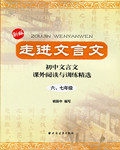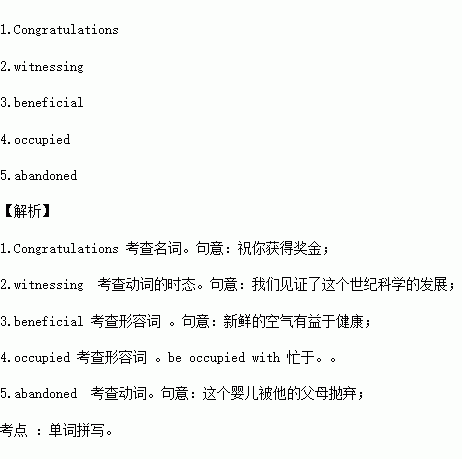题目内容
单词拼写: 根据下列句子及所给汉语,在右边横线上写出所缺单词的正确形式
1._________(祝贺) to you on winning the prize. __________
2. We were ______(见证) the most important scientific development of the century. __________
3.Fresh air is __________(有益) to one’s health. __________
4.Her time is fully _______(占用) with her three children. __________
5.The baby was _______ (抛弃) by his parents. _________
练习册系列答案
 走进文言文系列答案
走进文言文系列答案
相关题目

